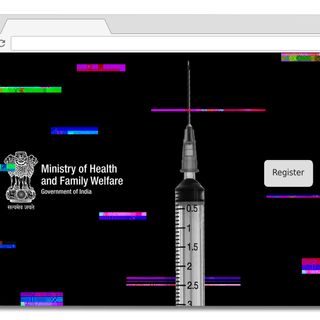
At Least 1 in 10 Women Globally Have Miscarried a Pregnancy, Research Shows
Recognizing the trauma and pervasiveness of miscarriage can help women get “the physical and mental health care they need.”

10% of women worldwide have experienced at least one miscarriage in their lifetimes, resulting in 23 million miscarriages every year, new research has found. It draws attention to a simple point: miscarriages are common — more than we probably believe.
To put the studies’ findings into perspective, 44 women lose a pregnancy every minute. And according to the authors, the actual number might be even higher since many miscarriages go unreported or even undetected. The Lancet published a trio of papers by 31 international experts on Monday, calling for a “complete rethink of the narrative around miscarriage and a comprehensive overhaul of medical care and advice offered to women who have miscarriages.”
While the precise causes of pregnancy loss is unknown, miscarriages that occur in the first trimester of the pregnancy are thought to be a result of the parents’ genetic material coming together in a way that isn’t viable, or of chromosomal abnormalities in the embryo. Miscarriage can also result from improper implantation of the fertilized egg in the uterus, or from underlying health conditions in the mother. Basically, a variety of factors can result in pregnancy loss, none of which are the fault of either parent. Most experts believe miscarriages are simply the body’s way of ending a pregnancy that is unlikely to develop into a healthy fetus.
According to a small-scale 2015 study, pregnancy loss may be more common in India than the global average; out of more than 2,000 women surveyed, 32% had lost at least one pregnancy. The rate of recurring miscarriages, which means two or more consecutive pregnancy losses, also appears higher in India than the global average — 7.46% versus 2%. While the exact reasons for this aren’t clear, India’s younger average maternal age might be a factor, as well as the effects of climate change in South Asia. Inadequate access to antenatal care, malnutrition among women of reproductive age, and air pollution are also likely factors that keep India’s miscarriage rate higher than the global average.
Related on The Swaddle:
How Do Women Heal From Miscarriage, If Society Won’t Let Them Talk About It?
And yet, the support women receive from their respective healthcare systems, wherever they are in the world, is grossly inadequate, according to the new research. “Many women have concerns over the unsympathetic care they receive following a miscarriage — with some not being offered any explanation, and the only advice they receive being to try again. This is not good enough, and we must ensure women are properly supported,” Siobhan Quenby, a professor of obstetrics at the University of Warwick, in the U.K., who authored one of the papers, said in a statement.
The experiences of Indian women echo those of women everywhere — not just because support is lacking, but also because awareness is, too. “I knew miscarriages were very common, but like with any adverse outcome, I never thought it would happen to me. I thought that since I was fit, active, healthy, and young that I wouldn’t be the one in four. But I know now that miscarriages happen across the board to younger, older, fit, unfit, healthy, unhealthy women,” Kavita Nehemiah, who runs an online support group for Indian women who have experienced miscarriages, told The Swaddle in March.
Due to the hush-hush manner in which miscarriages are treated, women around the world have been bearing the brunt of a problem that’s largely systemic. According to Quenby, “Silence around miscarriage remains not only for women who experience it, but also among healthcare providers, policymakers, and research-funders,” leaving women with little scope to access support.
But just because a pregnancy has ended, doesn’t mean the trauma of loss has. “For some women, physical and emotional healing happens fairly quickly. For others, it can take longer — months or even a year. And for many women, although their grief will become less acute over time, miscarriage is a loss they always carry with them,” Dr. Keki Pardiwala, a psychiatrist at Joy Motherhood Hospital in Mumbai, had told The Swaddle in December 2018. In fact, a 2011 study had found the depression and anxiety women may experience after the loss of a pregnancy can continue for years — even after the birth of a healthy child.
“For too long miscarriage has been minimized and often dismissed,” an editorial by The Lancet states. “The lack of medical progress should be shocking — instead, there is pervasive acceptance.” And the first step to bust the culture of silence shrouding miscarriages is to acknowledge how commonplace miscarriages are — so that we can build a system, where women can get “the physical and mental healthcare they need.”
Devrupa Rakshit is an Associate Editor at The Swaddle. She is a lawyer by education, a poet by accident, a painter by shaukh, and autistic by birth. You can find her on Instagram @devruparakshit.
Related


Untrending: Tea Tree Oil Only Has Minor Anti‑Bacterial and Anti‑Septic Benefits
